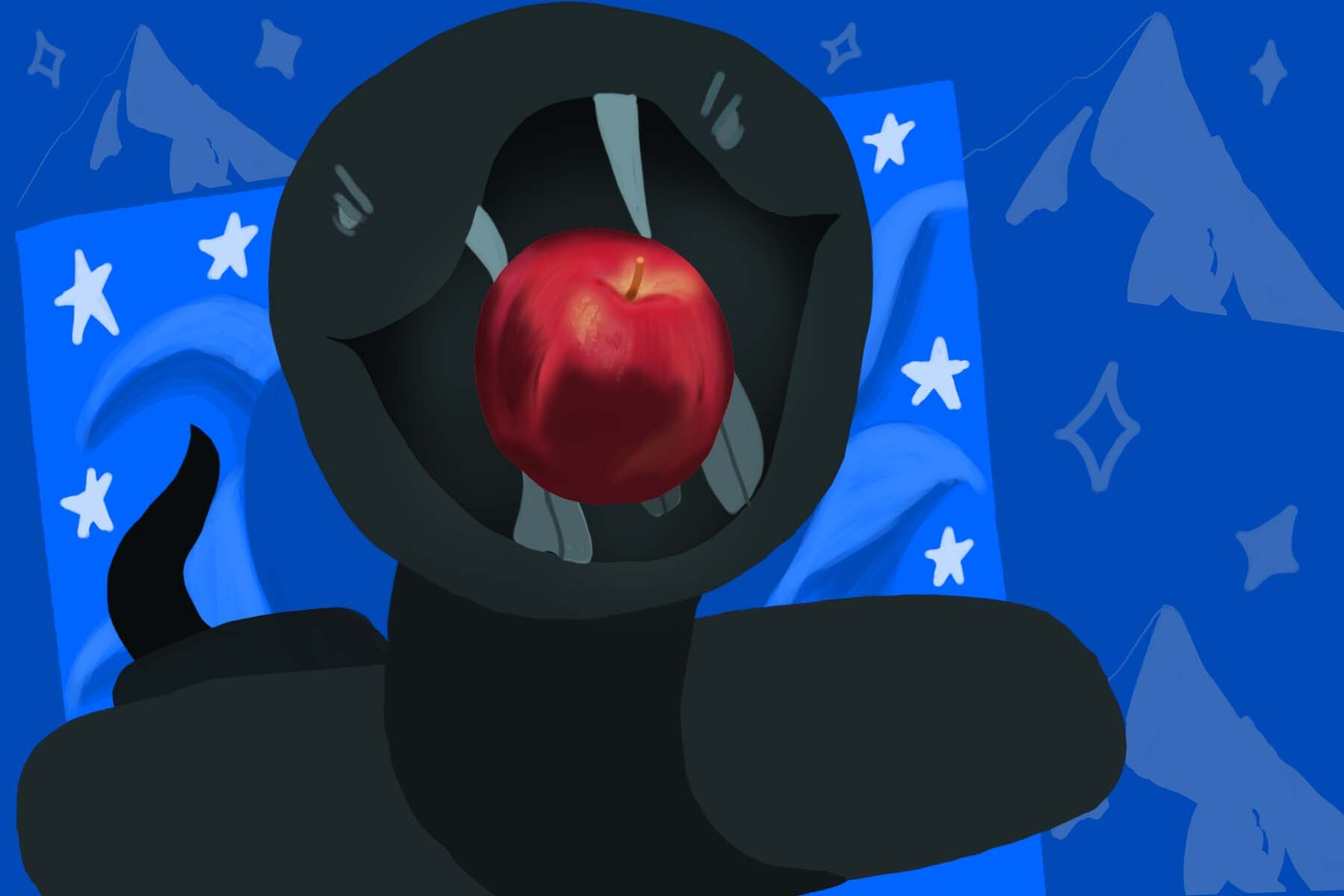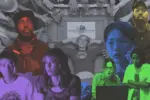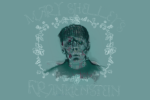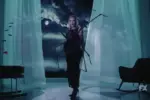When CBS announced a new show for the fall 2019 slate called “Evil,” written and created by critically acclaimed husband and wife duo Michelle and Robert King, it was surprising to say the least. Knowing the duo’s previous shows (“The Good Wife,” “The Good Fight”), fans would be shocked when watching “Evil,” an episodic series marketed as a crime drama. But “Evil” isn’t your usual drama — it’s more of a hybrid of horror, suspense and procedural styles. It is an amalgamation of the shows that came before it, which defined or changed the way these genres are seen on broadcast and streaming television.
The show focuses on a skeptical yet open-minded psychologist named Kristen Bouchard. She is hired to assist an assessor for the Catholic Church named David Acosta with the help of his associate Ben, a tech-savvy hacker and debunker of supernatural phenomena. The three are assigned to investigate potential cases of demonic possession or miracles and report back their findings to the archdiocese.
The pilot sucks you in right from the beginning. It brings the viewers into a scene with Dr. Bouchard and accused serial killer Orson Leroux, whose mental state she is assessing. Narration about his enjoyment of empty spaces plays as shots alternate between the present and scenes of a man’s throat being slit — presumably Leroux’s memories. He denies knowing anything about the murders, claiming he blacked out. However, upon seeing pictures of his victims, the shot changes to Leroux smothering a woman’s body before raping her.
This initial scene plays out like your standard legal drama as it shifts into the court hearing. However, the tone changes once Leroux’s lawyer asks Bouchard if his client is possessed — which, laughing, she asks if he means figuratively. After the court session, she thinks someone is coaching Leroux on how to claim demonic possession as she sees a man speaking with the accused, holding a rosary. Exiting the room, he offers it to her, assuring her that she can trust him. She declines and enters the room as he yells, “Do you know the Our Father?” Little does she know that this man is priest-in-training David Acosta, who will hire her for her psychological perspective.
Inside the interrogation room, she presses, “Why’s the defense saying you are possessed by a demon named Roy?” Leroux responds that he doesn’t know and stands by his blackout claim. Standing in position to leave, Bouchard faces him — the camera frames her in the upper half of a low-angle shot, establishing her dominance — “Are you Catholic, Orson?” Using her pointer finger, she draws a cross out of dust facing Leroux. “What does that mean to you?” He remains silent, his eyes closed in a refusal to look at it. Sitting back down, she beings reciting the Our Father.
This is what causes the scene’s climax. Leroux slowly opens his eyes, now full of contempt, before leaping out of his chair unnaturally. Spewing Latin, he attempts to strangle Bouchard before screaming, “I will ascend!”
The episode twists genres as Bouchard begins having a nightmare — or so we think. In it, a demon named George urinates in a room and mutilates her. Later, she joins David and Ben at Leroux’s home, where his wife speaks about his personality changes and the demonic sounds she has been hearing. The highlight of the show’s writing is its slow, creepy buildup and how some things seem real to the audience before being debunked. The demon George’s urine is actually rainwater from an open window; the demonic voice Leroux’s wife heard was actually air escaping through a clogged drainpipe. Despite this debunking, the audience still questions the reality in which these characters live. Is this a world where supernatural entities exist within the Catholic Church, or is everything psychosomatic?
Shows like “Buffy the Vampire Slayer” and “Supernatural” gave sci-fi fans the monsters-of-the-week format they craved throughout the ‘90s and early 2000s. They had modest or sometimes nonexistent budgets, dated special effects and cheesy scripts, but fans loved it, camp and all. Then came Ryan Murphy’s “American Horror Story,” which broke cable boundaries. Its first season, “Murder House,” shocked viewers with jump scares, graphic violence, psychological horror and the introduction of the now-famous Rubber Man. Its ability to portray ideas, narratives and themes infused with political commentary has cemented its status within the cultural zeitgeist; FX debuts its 10th installment and a spinoff this year.
However, throughout the history of TV horror, the majority of shows have had difficulty in conveying the scary narrative they want within the constraints of broadcast cable. Said restraints bar creators from delivering any horror through gore, swearing or other themes deemed too adult for network or broadcast television. As such, the genre has gradually moved on to streaming services, where there are few to no restrictions. Since moving to Paramount+ as an original show, the second season of “Evil” has upped the ante with even more suspense, horror and that overall sense of “Wait, was that real?”
Despite those restraints, the genre of horror TV and its various subgenres were built by pivotal shows like “The Twilight Zone,” “The X Files” and especially “Twin Peaks,” which was the catalyst for the creepy and downright weird shows we have today. “Evil” would never have existed without its predecessors.
The show’s unfamiliar formula is a mix of veteran tropes like legal procedurals and supernatural serials, but its focus — the discussion of credibility within both science and religion when debating the existence of angels, demons, possessions and miracles — has the potential for longevity. Seeing how “Evil” has been renewed for a third season, I think Paramount+ is aware of the power of the program their platform possesses.

















